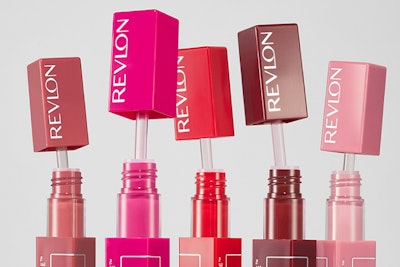Revlon
Global beauty company selling cosmetics, hair color, skincare, and other beauty products

Revlon's Sustainability Rating
Bad
Ingredients
Revlon doesn't make any comprehensive ingredient commitments at the brand-level. Choice of ingredients is a strong determinant of environmental impact. It uses many ingredients that pose a significant threat to the climate, including parabens, microplastics, other petrochemical-based ingredients, uncertified palm oil or palm oil-derived ingredients, and uncertified mica. It carries products that have certifications from EWG Verified.
Containers & Packaging
Revlon doesn't share information on its packaging materials. It appears to primarily rely on petro-based plastics for its packaging, of a virgin or unknown source, which greatly increases its emissions and waste footprint. Revlon hasn't made any efforts to concentrate its products or minimize its containers, which increases shipping emissions and packaging volumes.
Energy & Water Use
Revlon doesn't share information on its energy strategy. Revlon doesn't provide information on any water conservation strategies. Revlon has a global production span, which is standard for the industry.
Refill & Reuse
Commons couldn't find evidence that this brand offers any alternative models to lower its waste footprint, such as refills or takeback programs. It doesn't provide any guidance to help customers properly recycle or dispose of its products.
Slow Consumption
Revlon offers seasonal products or frequent releases, which can encourage overconsumption and production of excess inventory.
Marketing
Commons is still evaluating this brand's marketing emails.
Transparency & Reporting
Commons couldn't find a sustainability page or annual report for this brand, this signals a lack of transparency and accountability. Revlon doesn't share a complete list of ingredients used in its products. Though reporting isn't mandatory, this is rare since consumers need access to this information for safety and allergy determinations.
Emissions Tracking
Commons couldn't find information on this brand's emissions tracking. We expect large brands with the largest emissions footprint to track and report their data publicly.
Targets & Offsets
Commons couldn't find emissions reduction targets for this brand. Larger brands have an outsized impact and responsibility to reduce their emissions. Commons couldn't find evidence that this brand offsets any emissions.
Supply Chain & Labor
Revlon doesn't publish information about its supply chain partners. It publicly shares a supplier code of conduct, which prohibits child labor, and disallows unauthorized subcontracting. Its code of conduct doesn't ensure the right to collective bargaining, ensure a living wage, prohibit forced labor, establish grievance mechanisms, or include environmental clauses. Revlon doesn't have a stated policy of regularly auditing its supply chain partners. This may increase human and environmental risks. Commons couldn't find further information about this brand's supply chain and labor practices.
Advocacy
Revlon's parent company, Revlon Group Holdings LLC, doesn't openly disclose its climate-obstructive trade association memberships. It's a member of 1 large climate-obstructive trade associations: Personal Care Products Council. It isn't a member of advocacy organizations advancing climate policy. It doesn't employ any state lobbyists. Revlon didn't donate more than $100k to climate-obstructive candidates or PACs from 2018-2024.
We avoid Revlon because its sustainability reporting is incomplete or nonexistent.
Revlon uses many ingredients that pose a significant threat to the climate, including parabens, microplastics, other petrochemical-based ingredients, and uncertified palm oil or palm oil-derived ingredients. It also doesn't publish a full list of ingredients for each of its products. Though reporting isn't mandatory, this is rare since consumers need access to this information for safety and allergy determinations.
It appears to use primarily virgin plastic packaging and doesn't utilize any refills or takeback to reduce its waste and emissions footprint. Despite being a large international company, it's lacking reporting on its energy strategy, water efficiency measures, emissions measurement, emissions data, emissions reduction targets, offsets, and supply chain details.
Revlon is owned by Revlon Group Holdings LLC.
Our ratings are based on a scale from 1 (bad) to 5 (best). How we rate →
Get Rewards
Earn for sustainable purchases
Commons rewards you for sustainable purchases from all our Top Rated brands, plus thousands of everyday purchases — from thrift stores to public transit.
Learn more about rewards ->







